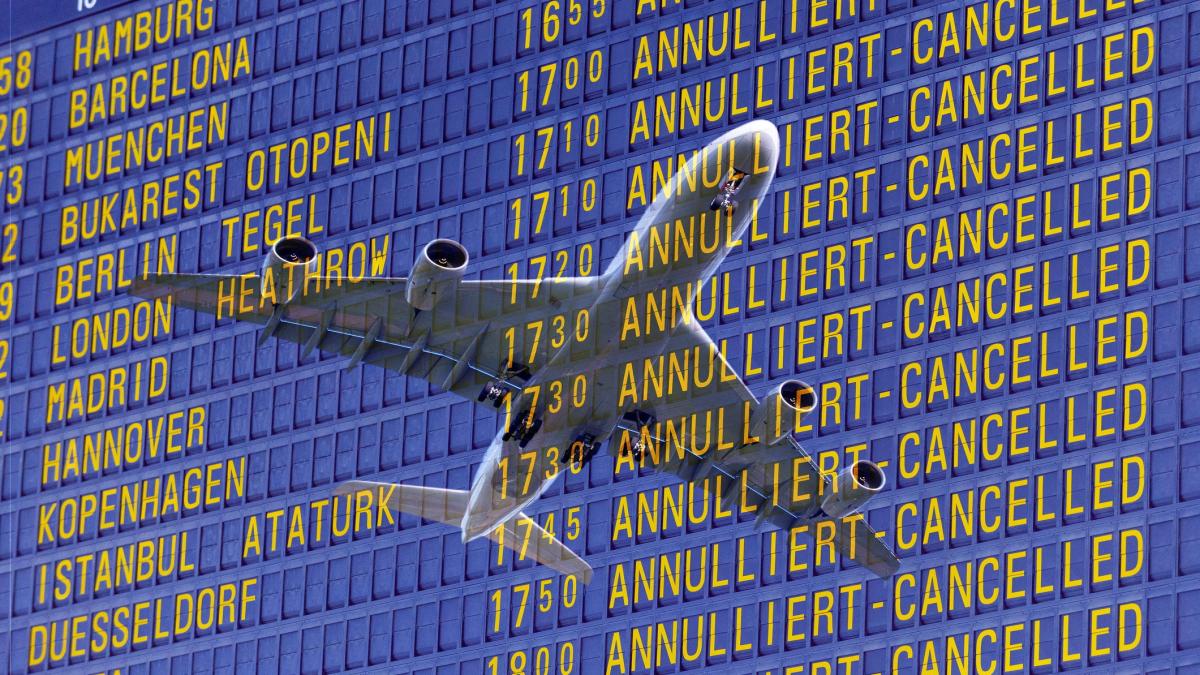Dhe flight is cancelled, the train leaves far too late, the long-distance bus arrives with a long delay: when travelling, not everything always goes according to plan. It gets even more annoying when there are disputes about possible refunds and compensation afterwards. What can those affected do if the company blocks passenger rights? Go straight to a lawyer?
A free option that can help to solve the problem in such cases is not known to many: arbitration boards. time to change that. Because in the best-case scenario, with their help, you can get your rights covered quickly and relatively uncomplicatedly in the event of travel hassles.
When do arbitration boards come into play?
In short: when the customer and the company cannot find common ground in a dispute. This also means that there must first have been an attempt at clarification.
Anyone who had problems with the bus, train or plane must first contact the provider and try to solve the problem directly. If the dispute cannot be resolved in this way, or if the company does not get in touch at all – with airlines, for example, the period for this is two months – you can turn to an arbitration board.
What are typical travel arbitration cases?
“The absolute classics are delays and short-term cancellations of flights,” says Christof Berlin, head of the arbitration board for public transport (SÖP). The core questions to be clarified are then usually: Is the cause outside of normal flight operations and was the airline able to avoid the effects on travelers? If so, there is a compensation payment that can be 250, 400 or 600 euros per passenger. If that’s not the case, then don’t.
With around 50 employees, the SÖP is one of the largest German arbitration boards. According to its annual report, it processed around 30,000 requests for arbitration in 2022, and around 37,100 complaints are expected this year. In the first half of the year alone, the consumer center received almost 18,700 applications.
The main reason for the increase was the travel chaos at German airports last summer. Those affected first had to contact the airlines for reimbursement requests. Only if they got no further could they submit an application to the arbitration board. It can therefore sometimes take several months between the event and a complaint to the SÖP.
Around 86 percent of all cases involved flight trouble, 13 percent revolved around the train. Travel by long-distance bus or ship, trouble with travel agency portals or problems with local public transport were less common.
The latter are primarily on the agenda at the local transport arbitration board in North Rhine-Westphalia. A typical dispute from her work: someone is caught with an invalid ticket and has to pay extra on the train. “The subsequent collection of fares is an evergreen for us,” says Beatrix Kaschel from the local transport arbitration board.
A dispute between “dodgers” and the company can arise, for example, over the question of whether the stamping machine on the platform really didn’t work, as the customer claims.
How do I find the right arbitration board?
The name already reveals that the local transport arbitration board in North Rhine-Westphalia primarily helps with public transport problems in NRW. There is another contact point for problems with public transport in the states of Lower Saxony and Bremen – the SNUB – and in general the SÖP can also be contacted in the event of local transport problems.
The SÖP, in turn, also helps with problems with airlines or, for example, with long-distance rail traffic. Prerequisite: The company you are having problems with must be a member of the SÖP, which is a registered association. Around 400 transport companies are taking part in the arbitration process, which they finance themselves.
The list of members includes other names such as Lufthansa, Ryanair, Deutsche Bahn, Flixbus, various ferry companies and the travel portal Expedia.de. “In the flight sector, we cover around 90 percent of the relevant market for Germany,” says SÖP manager Christof Berlin.
If an airline is not a member of the SÖP, the official air traffic arbitration board at the Federal Office of Justice remains. According to the European Consumer Center, in order to get them on board, it is crucial that the flight took off or landed in Germany. In individual cases, arbitration can also take place in other constellations.
According to the official arbitration board, arbitration requests for airlines that are members of the SÖP are submitted directly to the SÖP.
How to submit the application?
The best way to submit a complaint is online – the arbitration boards have standardized forms to fill out on their websites. It is advisable to use these. A basic check is often made with just a few questions as to whether the arbitration board can help.
In addition, the necessary documents are also requested in this way. In the end, it’s faster than calling or writing emails first.
What happens after the application is submitted?
In the arbitration board, the application is examined by lawyers. If it is permissible, the company concerned will be asked to comment. In some cases, the arbitrators themselves are still researching facts about the dispute. Sometimes the ball goes back to the person concerned after the company has reported – for example with the question of further evidence.
Once the arbitration board has all the necessary information and statements, the arbitration proposal follows – usually within 90 days. This is the deadline provided by the law. The vast majority of cases, apart from complicated exceptions and seasonal peaks, can be processed within the deadline, says SÖP head Berlin.
It often only takes a few weeks, sometimes just 24 hours after the application has been submitted by the person concerned, to find a solution. Sometimes the case is very clear, says Berlin. Then, for example, the company writes immediately after the request for a statement: “Okay, we’ll pay, you don’t have to check further.”
But it’s not always that clear. It is also possible that the arbitration recommendation is that the company should only pay part of the sum demanded by the person concerned.
How binding are the arbitration proposals?
They are not binding for either party. The company and the affected customer receive the arbitration proposal and can either agree to it or not. If you are not satisfied, you can take further legal action. So it is good to know that it is possible to go to court even after a failed conciliation procedure.
The reverse is not true: If proceedings are pending in court, you can no longer appeal to an arbitration board.
What is the success rate?
According to its head Christof Berlin, the SÖP achieves a solution in most cases. “Our agreement rate has consistently been over 80 percent over the years, and at the moment it’s almost 90 percent,” he says. At the local transport arbitration board in North Rhine-Westphalia, the rate is around 70 percent, according to Beatrix Kaschel.
How much does arbitration cost?
It is usually free of charge at the arbitration boards listed. Fees of between 25 and 30 euros may only be due for applications that are obviously abusive.
The Federal Office of Justice explains on its website: “A request for arbitration is abusive if it has a querulous character and is obviously hopeless from the point of view of a person with no legal knowledge.”
Additional Information:
Arbitration boards are a neutral authority to help consumers and to find out-of-court solutions to disputes with companies. The official term for them in Germany is “consumer arbitration boards”. These must meet certain legal requirements in terms of expertise, impartiality, independence and transparency and comply with a regulated procedure in the arbitration process.
In addition to the arbitration boards for all aspects of passenger transport, there are corresponding contact points in the financial, energy and insurance sectors, among others. The Federal Office of Justice has listed all consumer arbitration boards online.




